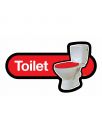Photograph By adam121 – stock.adobe.com.
When people look for a care home for themselves or a loved one, they often have more in mind than simply the location and convenience of the care home. Have you ever wondered about the common key attributes people expect to find in their ideal care home?
The Care Quality Commission has a duty to inspect and monitor adult social care services such as care homes, hospitals and more. The CQC inspect services to discover whether they are safe, responsive to people’s needs, effective, well-led and caring. However, what are the key elements that people search for in finding a trust-worthy care home for a person with Dementia? We have collected information from the Alzheimer’s Society to find out.
The top key attributes of a good care home
1. Evident person-centred care
The Alzheimer’s Society asserts that a good care home should follow the principles of person-centred care. This method requires the care home staff to view the person in care as an individual, rather than focusing on their illness and any abilities they may have lost. The Alzheimer’s Society states, “person-centred care takes into account each individual’s unique qualities, abilities, interests, preferences and needs. Person-centred care also means treating residents with dignity and respect”. This means paying extra attention to the individual in order to bring out the best in them.
If people visit your care home for a relative with Dementia, they are likely to ask very specific questions about the style of care you provide. Therefore, it may be useful to take a look at the care you provide and ensure every resident is valued and respected as an individual.
2. A Homely Physical Environment
A Care Home should not be an exact replica of a hospital or an environment which looks in any way intimidating or uninviting. The Alzheimer’s Society guides their readers, “a smart hotel-style environment might impress visitors initially, but the visitor must remember that it is going to be a place to live”. Individuals with Dementia appreciate having objects and activities to stimulate their interest and prevent them from becoming bored, and it is common for visitors to check whether the residents are busy and entertained.
If you are searching for some games and activities to keep your patients occupied and your visitors impressed, you can find our range of games and activities designed for people with Dementia here.
3. Efficient Communication
A Care Home does not only have the responsibility of taking care of the residents. Care Home staff also have a duty to stay in contact with the families of those in the Care Home if any accident or incident was to happen. The Alzheimer’s Society states, “staff should also see relatives and close friends as playing an important role in complementing the support and care offered by the home.” There should always be a member of staff available to talk to the person with Dementia, their friends or relatives about any worries they have. This should include both physical and emotional problems they may be experiencing, and visitors will expect to see evidence that this support is provided.
4. Happy and responsive residents
According to research, visitors of Care Homes for Dementia patients are often guided to consider the following questions:
- Do staff speak to residents in a way the residents appreciate?
- Are residents involved in activities or socialising?
- Are residents properly dressed and well groomed?
- Do residents seem alert and interested?
- Do residents talk to you as you walk around?
- Are residents encouraged to do as much for themselves as they can?
5. Toilet Mobility to aid Incontinence
It is common for people with Dementia to develop incontinence and need additional help for getting to and from a bathroom.
Many visitors often consider the ease of which toilets can be reached to be a priority. It may be useful to take a small tour around your Care Home and ensure that residents can easily reach bathrooms without any potential danger. Ensure you look out for things such as objects in the way of an entrance to a bathroom, doors which have faulty locks or any carpets or rugs which have come loose and may be a hazard.
The following questions may be useful to consider when ensuring your care home is practical for people with incontinence who need access to the toilet quickly.
- Are your staff trained to spot the signs when someone needs to go to the toilet?
- Are staff cheerful and tactful about helping residents use the toilet and changing them if they are incontinent?
- Do you have clear signs and a clear route for residents to find the nearest toilet?
If your Dementia residents require support with finding their way to basic facilities such as the bathroom, you can shop through our range of wayfinding and orientation aids.
